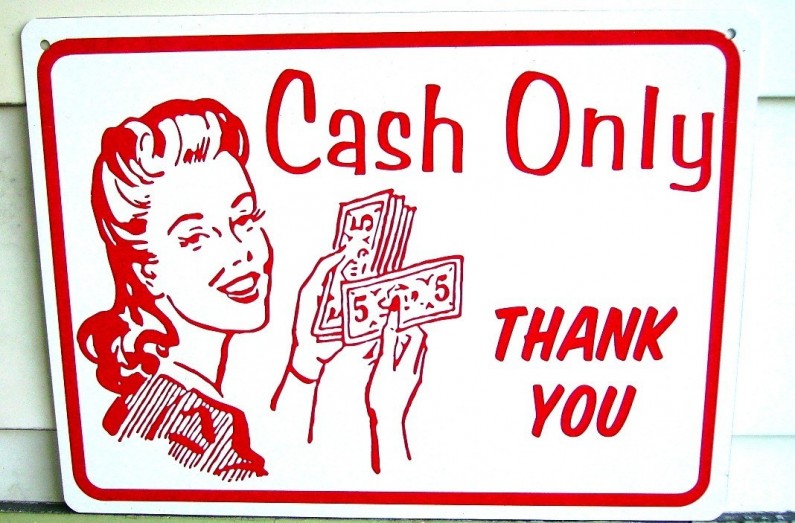Whether you pay by chip and pin or through contactless payments on your mobile phone, the chances are that most of your transactions are made without physical cash ever being present. While this is excellent for convenience, it does mean that people leave themselves vulnerable to technological malfunctions – as many of us realised when Visa payments went down for a brief period last week. While Visa’s issues were little more than a blip on a generally excellent service record, it did leave us wondering what options re available to people who suddenly find themselves facing a cash-free crisis.
Don’t panic
First thing’s first – don’t panic. If you’re in a shop and your card gets declined then it’s easy to feel embarrassed, even if you know that the issue definitely isn’t caused by a lack of funds. The truth is that card readers won’t work 100% of the time so shop staff are used to it. Just pay with an alternative method or, if that’s not possible, apologise and leave with your dignity intact.
Check the details
The first thing to check is human error. Is it possible that you used the wrong card, entered the wrong pin, or used a card that has recently expired? Double – or triple check – to be sure.
Contact the bank
Once you’re sure you’re not at fault, get in touch with your bank right away. They may have placed a hold on your card following suspicious activity, in which case you can go through the anti-fraud procedures with them and, hopefully, get your card unlocked. Or they might be experiencing other technical difficulties, in which case they’ll be able to give more details and potentially send out a replacement card.
Make a note of any expenses
If the problem is a technical failing on the bank’s side, and it causes you to incur other expenses (for instance, because you have to catch a bus to get to a cash machine), then make a note of those costs. It may be possible to have them reimbursed by the bank.
Always have a back-up plan
The most important thing is to always have a back-up plan. This may mean keeping a credit card for use in emergencies (and remembering to pay it off in full each month!), having a second bank account with an emergency fund or keeping some cash on hand for smaller purchases. While we certainly don’t advocate keeping a large amount of cash outside of your bank account, taking out a few notes at the start of each week is a good way to cover your expenses – and can also help you stay on track of your spending.

